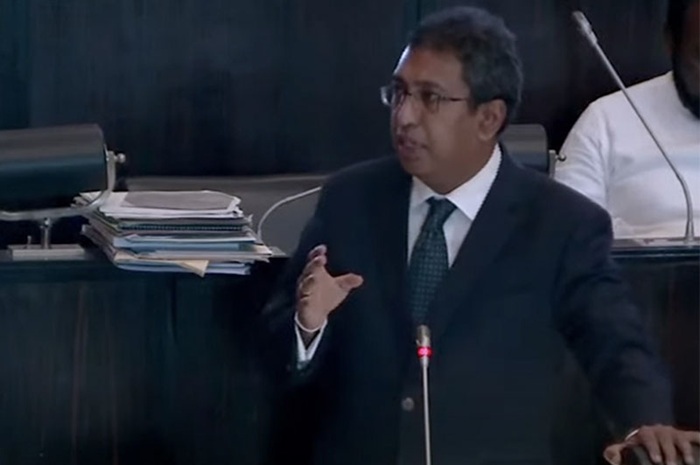
Samagi Jana Balawegaya (SJB) Harsha de Silva slammed the government for its recent decision to suspend the clearance of vehicles imported under cross-border Letters of Credit, calling the move impractical.
De Silva was addressing Parliament when he said that hundreds of imported vehicles are now languishing at the Hambantota port, stating that these vehicles are now facing the possibility of re-exports.
“How can they be re-exported? These are irrevocable LCs. What will Trump say? Can we make a deal to revoke an LC of one of the biggest American banks? Don’t talk of impractical solutions,” De Silva said.
The MPs comments come after Sri Lanka Customs defended its recent decision to halt the clearance of vehicles imported under cross-border LCs, which Customs said was to tackle tax evasion through under-valuation of vehicles.
Media reports indicate that hundreds of vehicles stranded at the ports, with Customs officials stating that the move only enforces existing import regulations. A surge of irregularities were reported following the resumption of vehicle imports, the Customs said, prompting the decision.
A majority of vehicle importers have been using LCs opened in third countries such as Singapore to declare purchase prices lower than the actual value of vehicles imported from manufacturing countries like Japan, according to Sri Lanka Customs.
Explaining further MP Harsha de Silva said the issue stems from the 2013 law which prohibits opening LCs in third countries, if the vehicle is a used vehicle. “Some cars have only been used for three days, while the mileage will be only three to four kilometres. But they are used vehicles,” De Silva explained, adding that used vehicles are often imported with a discount of around 15 per cent.
The MP pointed out that despite the 2013 regulation which prohibits third country LCs to import used vehicles, it had not been enforced until 2025. “What we feel is that this is due to the change of trading practices in the world. There are hubs now, such as Singapore, Dubai and Thailand,” he said.
“Vehicles manufactured in Japan and other countries are purchased in bulk, and these hubs then sell the vehicles through LCs,” he said. De Silva added that the government had now stated it would not honour the LC or clear the vehicles through Customs unless the documents were certified by a bank of the vehicle manufacturing country.
According to Customs, this practice amounts to duty fraud through the deliberate undervaluation of vehicles. MP De Silva questioned the decision to suddenly enforce the regulation, stating that this means that vehicles imported in this manner from 2013 are illegal imports. “If that is the case a forensic audit should be conducted, and everyone should be taxed this way,” MP De Silva said. (Newswire)
